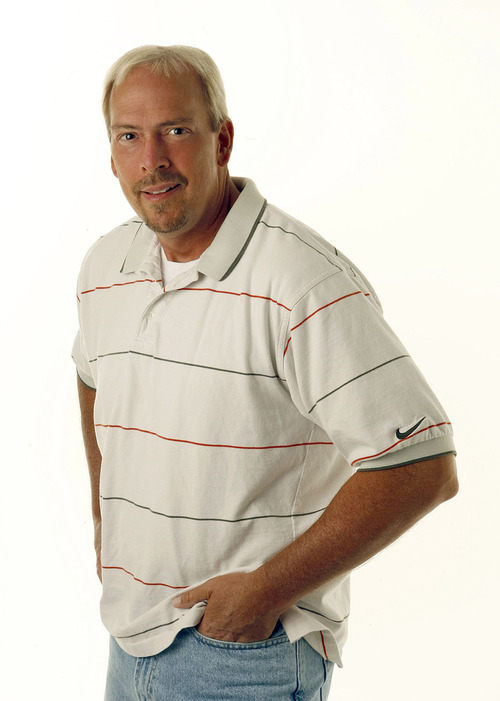This is an archived article that was published on sltrib.com in 2013, and information in the article may be outdated. It is provided only for personal research purposes and may not be reprinted.
Everybody knows there will be ups and downs for Trey Burke.
Everybody also knows having more ups as time goes by is a center point for the Jazz pulling themselves out of their season of stumbling and bumbling, their season of hard lessons, their season of losing. They must keep that season-of thing in the singular. It's one thing to lose in the short term. It's quite another to make it a perennial sentence.
Burke has to live and learn, then. He cannot live and let die.
He plays what has become the most important position on an NBA floor — ironic considering basketball is seen as a tall man's game — and that's especially true for a developing team like the Jazz. The quarterback is everything in football. It's a big thing in basketball.
And the rookie, on a lot of nights so far, has made a difference.
He started inauspiciously by giving everyone the [broken] finger. That unfortunate injury was a little like watching your kid run from his bedroom door on Christmas morning toward the gifts under the tree, only to trip and face plant into the hearth, breaking his nose in the process.
It broke the Jazz's nose, too.
With Burke on the bench, the club tore into the season by losing its first eight games. If he was taking notes from the bench, most of what he was scribbling down was what not to do. As losses mounted, Burke likely was doodling images of opponents tomahawk dunking at the other end. If there was one thing his team had perfected in his absence, it was the turnover. That was the only league-wide category in which the Jazz reigned supreme.
When he returned, Burke made an impact, helping the Jazz win five of their next 15 games. Most notably, he did not turn the ball over. Already, the 21-year-old point has one of the best assist-to-turnover ratios in the league — and he doesn't yet really know what he's doing.
Look at the lines of some of his better games: 20 points and five assists against the Spurs, 10 points and 10 assists at Denver, 11 points and nine assists at Sacramento, 19 points, 10 rebounds and seven assists against the Kings, 21 points and six assists against Houston, 20 points, six rebounds, three assists against Phoenix. In his last 10 games, he's had just 12 turnovers.
That's the good news.
Here's the bad: Burke shot just 1 of 8 against Miami on Monday night, 3 of 12 against the Nuggets, 5 of 19 against the Kings, 3 of 9 against Portland and 6 of 15 at Phoenix. In his last 10 games, he has made 50 percent of his shots just three times. Overall, he's made 37 percent.
On the one hand, the rookie is a fearless shooter who is willing to take — and sometimes able to make — big perimeter shots and, despite his diminutive size, challenge taller defenders in the paint. On the other hand, maybe he shouldn't be quite so fearless, in the name of efficiency, not wasting trips on which aggression turns into presumption.
He's smart enough, though, to groom his own game and aware enough to help others groom theirs. That last part is significant. The sample size is still short — just 15 games — but it's reasonable to project a bright future for Burke. Those benefits of his presence reach beyond his current play, his current stats. They can open — and will open — the floor for the other youngsters with whom he is growing: Derrick Favors, Gordon Hayward, Enes Kanter and Alec Burks.
As Favors put it, "Trey makes it easier for everybody."
Everybody knows there will be ups and downs.
Everybody also knows there will be more ups as time goes by.
GORDON MONSON hosts "The Big Show" with Spence Checketts weekdays from 3-7 p.m. on 97.5 FM/1280 and 960 AM The Zone. Twitter: @GordonMonson.



